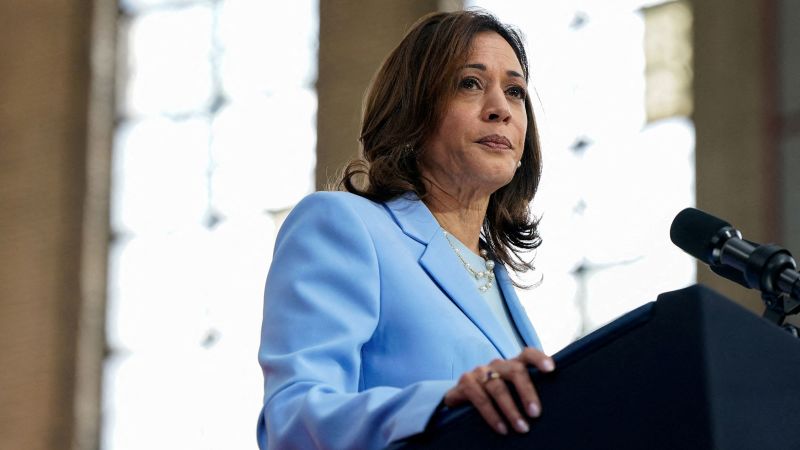Vice President Kamala Harris criticized Republican Rep. Byron Donalds’ suggestion that Black families were “together” during the Jim Crow era, calling it an attempt to rewrite history and erase the true experiences of Black Americans. Harris also criticized Florida’s interventions under Republican Gov. Ron DeSantis into Black history curriculums, accusing the state of trying to replace history with lies. Donalds made his comments at an event in Philadelphia with Texas Rep. Wesley Hunt, another Black Republican supporter of former President Donald Trump, as Trump’s campaign seeks to make inroads with non-White voters.
Harris contrasted the Biden administration’s position on abortion with those of prospective GOP vice presidential nominees, pointing out that many of them have supported Trump’s abortion ban and even voted against the right to contraception. She highlighted the administration’s messaging campaign in the wake of the Supreme Court’s decision to overturn the federal right to an abortion in 2022. Harris has previously waded into culture war issues, such as traveling to Florida last year to slam Florida Republicans after the state Board of Education revised standards for teaching Black history.
During her visit to Florida last July, Harris criticized the revised standards that included instruction for middle schoolers on how slaves developed skills that could be applied for their personal benefit. She emphasized the importance of knowing and acknowledging history and urged against unnecessary debates created by politicians trying to divide the country. Harris has often served as the administration’s messenger on hot-button issues, such as deploying to Jacksonville, Florida, after a controversial ban on most abortions after six weeks of pregnancy went into effect in the state. She has also traveled to Tucson to address a state Supreme Court ruling upholding a Civil War-era ban on abortion with no exceptions for rape or incest.
Vice President Kamala Harris has consistently spoken out against attempts to rewrite history and erase the true experiences of marginalized communities. She has criticized Republicans who support Trump’s abortion ban and strict abortion restrictions adopted across the country, blaming the former president for these policies. Harris has emphasized the importance of acknowledging and learning from history, particularly regarding the impact of slavery and discrimination on Black Americans. As a key messenger for the Biden administration, she has continued to advocate for marginalized communities and push back against divisive political narratives.
Harris’s strong stance against efforts to distort history and divide the country has made her a vocal advocate for social justice and equality. She has challenged Republican politicians in Florida and elsewhere who seek to revise curriculums and promote misleading narratives about historical events. By highlighting the experiences of marginalized communities and condemning attempts to suppress their stories, Harris has emerged as a prominent voice in the ongoing cultural and political debates in the United States. Her dedication to truth, justice, and equity has resonated with many Americans and solidified her role as a powerful advocate for change and progress in the country.
Through her actions and statements, Vice President Kamala Harris has demonstrated a commitment to upholding the values of equality, justice, and empathy. She has consistently used her platform to amplify the voices of marginalized communities and challenge systems of oppression and discrimination. By speaking out against efforts to rewrite history and distort facts, Harris has shown a dedication to transparency and truth-telling. As a leader in the Biden administration, she has been at the forefront of addressing pressing social and political issues, advocating for the rights and dignity of all Americans, regardless of race, gender, or background. Harris’s advocacy for social justice and equality has made her a respected and influential figure in American politics, shaping the national conversation on important issues and driving progress towards a more equitable and inclusive society.


